Right-leaning US Supreme Court Delivers Blow To Abortion Rights
A Supreme Court transformed by Donald Trump has delivered the biggest blow to abortion rights in the United States in 50 years by refusing to block a Texas law that bans the procedure after six weeks of pregnancy.
Abortion opponents were celebrating Thursday, while Democratic President Joe Biden lashed out at the court and pro-choice groups geared up for further legal challenges to the "Texas Heartbeat Act."
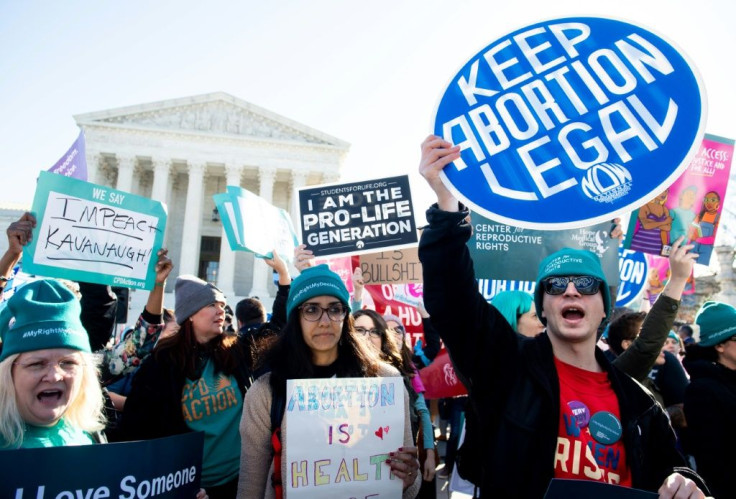
That law bans abortion once a heartbeat can be detected, which usually takes place at six weeks -- before many women even know they are pregnant -- and makes no exceptions for rape or incest.
"A tremendous #prolife victory!" tweeted Dan Patrick, the Republican lieutenant governor of Texas, America's second-most populous state.
The anti-abortion group "Texas Right to Life" called it a blow to "the unjust ruling of Roe v. Wade," the landmark 1973 Supreme Court case that legally enshrined a woman's right to an abortion.
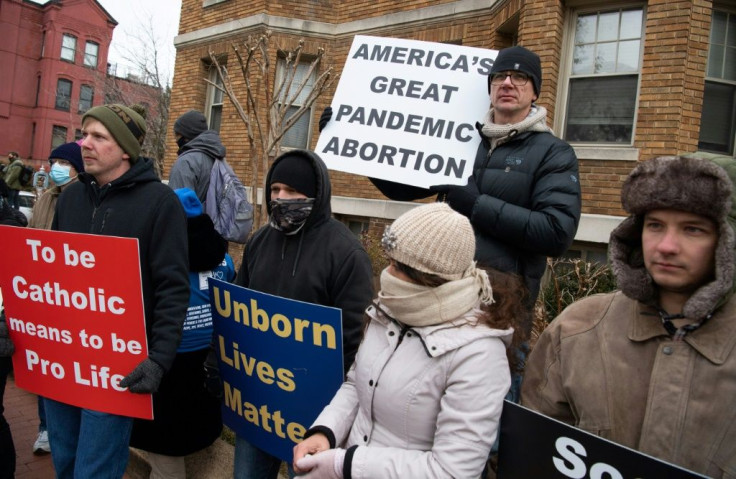
Biden denounced the court's 5-4 ruling on the Texas bill as "an unprecedented assault on a woman's constitutional rights" that "insults the rule of law."
He took particular aim at a provision of the act passed by Republican lawmakers in Texas that allows members of the public to sue doctors who perform abortions after six weeks or anyone facilitating the procedure.
"By allowing a law to go into effect that empowers private citizens in Texas to sue healthcare providers, family members supporting a woman exercising her right to choose after six weeks, or even a friend who drives her to a hospital or clinic, it unleashes unconstitutional chaos and empowers self-anointed enforcers," he said.
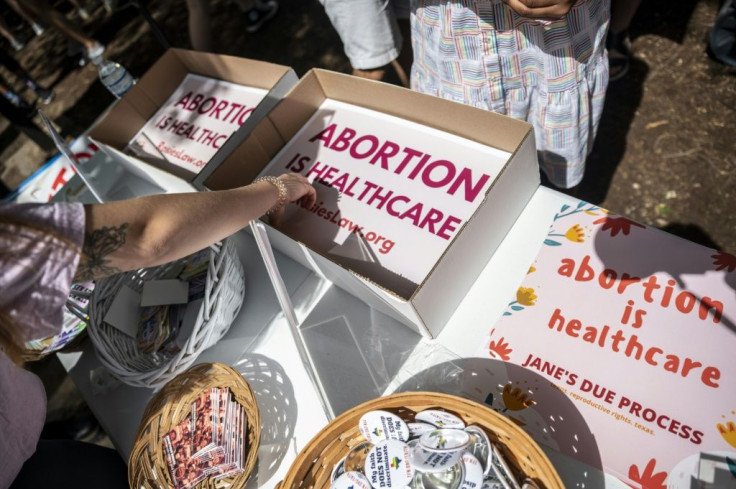
"Complete strangers will now be empowered to inject themselves in the most private and personal health decisions faced by women."
Vice President Kamala Harris said, "We will not stand by and allow our nation to go back to the days of back-alley abortions."
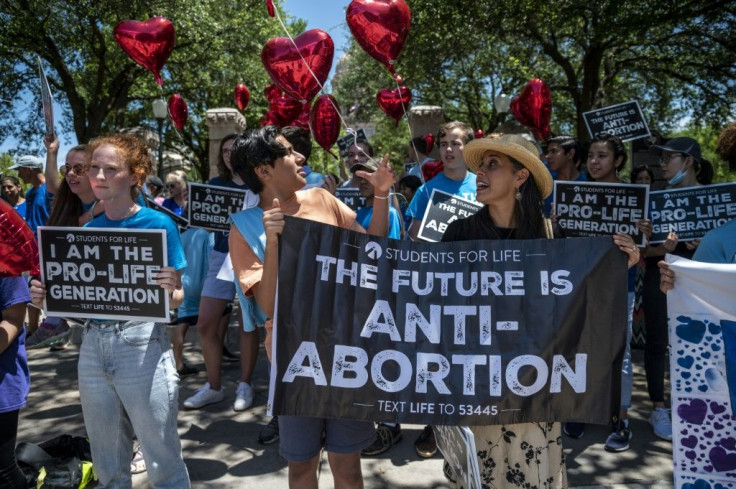
"We will use every lever of our Administration to defend the right to safe and legal abortion -- and to strengthen that right," she said.
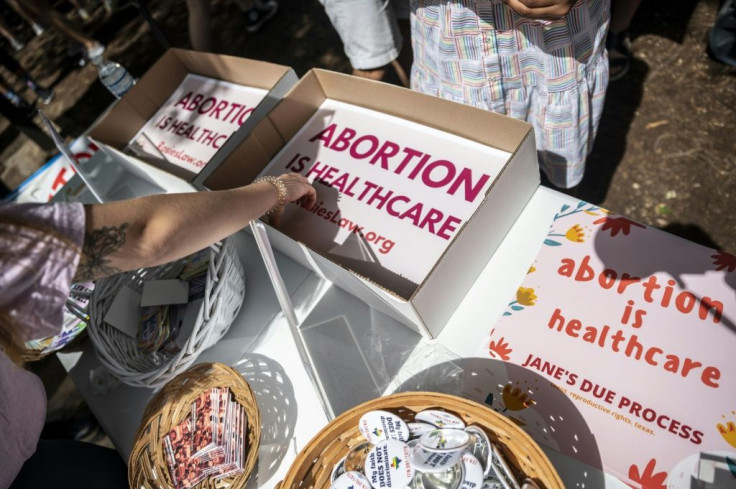
Nancy Pelosi, the Democratic speaker of the House of Representatives, denounced what she called a "cowardly, dark-of-night decision" by a "radically partisan" Supreme Court and said Congress may take up the issue.
When the House reconvenes on September 20, Pelosi said she will have it consider legislation that would "enshrine into law reproductive healthcare for all women across America."
Nancy Northup, president of the Center for Reproductive Rights, vowed to "keep fighting this ban until abortion access is restored in Texas."
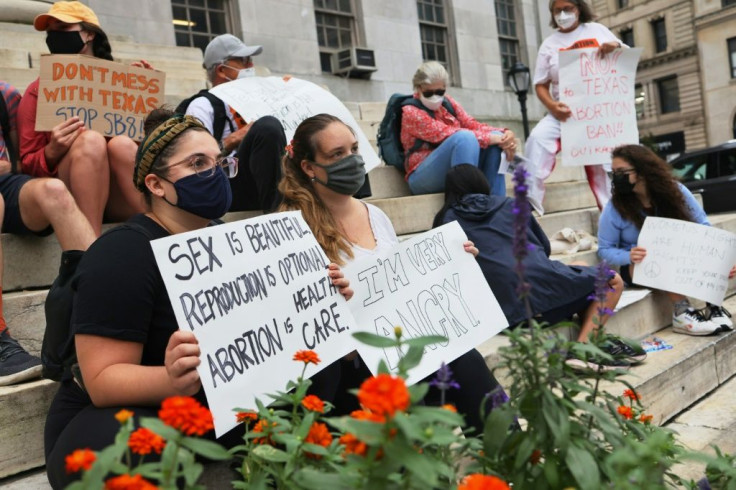
"Right now, people seeking abortion across Texas are panicking -- they have no idea where or when they will be able to get an abortion, if ever," Northup said.
Similar laws banning abortion in the early stages of pregnancy have been passed by the legislatures of a dozen Republican-led conservative states, but all had been stymied in the courts.
The American Civil Liberties Union, Planned Parenthood, the Center for Reproductive Rights and other groups had filed an emergency request with the Supreme Court on Monday, asking it to stop the Texas law from going into force.
But the court refused to block the legislation late Wednesday.
The five most conservative justices on the court -- including the three nominated by former president Trump -- said they would allow the law to take effect while the other four said it should be put on hold.
Generally conservative Chief Justice John Roberts sided with the three liberal justices and called the law "not only unusual, but unprecedented."
Justice Sonia Sotomayor, a liberal, said her fellow justices had "opted to bury their heads in the sand" over a "flagrantly unconstitutional law."
Like Biden, Sotomayor criticized the provision that allows private citizens to bring civil suits to enforce the abortion ban, rewarding them with $10,000 for a successful prosecution.
"It cannot be the case that a State can evade federal judicial scrutiny by outsourcing the enforcement of unconstitutional laws to its citizenry," she said.
According to the ACLU, approximately 85 to 90 percent of the women who obtain an abortion in Texas are at least six weeks into pregnancy.
White House Press Secretary Jen Psaki said there was concern that other conservative states may attempt to "copycat" the Texas law. "That's why the president thinks it's so urgent," she said.
Roe v. Wade guaranteed the right to an abortion in the United States so long as the fetus is not viable outside the womb, which is usually not until the 22nd to 24th week of pregnancy.
The Supreme Court had already been due to hear a case in the coming months involving a Mississippi law that prohibits abortions after the 15th week of pregnancy, except in cases of medical emergency or a severe fetal abnormality.
© Copyright AFP 2024. All rights reserved.





















